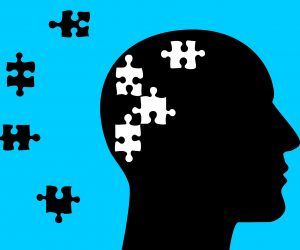
8 Tips to Help You Become Comfortable with Uncertainty & Use It to Your Advantage
Dr. Caroline Leaf – Uncertainty is one of the only things we can be certain of in life, so we need to learn to become comfortable with the discomfort of not knowing. In this week’s blog and podcast, I am going to talk about WHY we hate uncertainty, why we feel so much discomfort with uncertainty, and HOW to become comfortable with uncertainty and use it to your advantage.
When we are going through a tough time, it’s natural to want to find the easiest route out of it. We want to eliminate ambiguity and uncertainty. We want to know what works up front– a formula that tells us what to do and guarantees that if we do this, we will succeed. Why do you think the self-help movement is so successful?
However, many successful “doings” are surrounded by a degree of uncertainty and vagueness, which needs to be embraced in all its ambiguity, because this is often where we come face to face with the solution. Indeed, many things in life are not clear-cut; we have to work hard and find our own unique, organic, step-by-step way of moving forward.
Uncertainty often motivates us to rise to the challenge. It compels us to look inward, accepting and embracing the discomfort of not knowing; it forces us to examine, wonder, ask questions, and deal with our fears. Walking into uncertainty can be very illuminating because it helps facilitate the reconceptualization process, which I discussed in a recent blog. And this is often when breakthroughs occur!
If uncertainty can be so illuminating, why are we so averse to it? In many cases, when we face uncertainty we feel that:
• Our safety and security is at risk.
• We are out of control.
• Uncertainty feels like a virus – we have evolved to avoid things that jeopardize our survival (this is our internal flight or fight instinct).
• Our potential past traumas were associated with big, unknown changes, which has made as afraid of the mysterious.
• We feel powerless because society makes us feel that if we don’t have our stuff together then it’s all our fault. Externally, we feel pressured to have our life in order all the time. The uncertainty of sickness is a good example of this: it is often seen as a sign of moral, ethical or spiritual weakness. Internally, uncertainty can make us feel like our heads are a mess. The brain wants balance and coherence, so when we are afraid of the unknown, our brains experience this disorder in a tangible and real way.
It is not uncommon for us to become experts at suppressing our fears of the unknown. Say, for example, you are dealing with a mysterious illness and know you must go through a series of uncomfortable diagnostic processes that feel like they will provide no answer. You may pretend that nothing is wrong and keep super busy to avoid going for testing, or do as little as possible until your body gets the better of you and these tests becomes unavoidable. You are practicing suppressing what you are dealing with and, before you know it, three weeks have passed, then six weeks, then nine weeks and you have developed a toxic habit of suppressing your fear of the unknown, which is only making you feel worse. You have become an expert at avoiding the unknown, since habits take about nine weeks (or 63 days) to form, but the unknown doesn’t go away!
Of course, it is normal to think that uncertainty sucks; it can be scary and awful to not feel in control of your own life. But, if you want to move forward in life, you need to give yourself permission to face the darkness of uncertainty, or it will hold you back in life. As I mentioned above, periods of uncertainty are unavoidable, so you should either learn to love them and look forward to them, or you will fear them and feel overwhelmed when they come.
And, although it may not seem like it, it is possible to become more comfortable with uncertainty and use it to our advantage. In the way that nausea, sweating and so on is the way the body frees itself from toxic matter, embracing our mental pain and accepting the uncertainty that comes along with it is how we can begin to free ourselves from our toxic experiences, whether this is a toxic habit we have developed or a trauma we have experienced.
How Can You Start Doing This in Your Own Life?
1. Practice standing outside yourself: one way of helping you to do this is to use a technique I call the MPA, or Multiple Perspective Advantage. It allows you to objectify, externalize and distance yourself from a situation to provide a better perspective, which can help you assess your own feelings and emotions when it comes to the uncertainty you are facing, and find the courage to find a way forward.
When we are immersed in something it’s hard to see the wood for the trees, and we can let toxic emotions cloud our judgement. But, by standing back and observing our own thinking, we can shift our perspective and find new insights into our character and what we need to do. It’s almost as though we are observing someone else go through the uncertainty, and, let’s face it, it’s far easier to see solutions for someone else than for yourself!
The MPA can be used any time you feel you aren’t getting perspective. Your brains is designed to respond to the MPA by firing up the frontal lobe with lots of good gamma waves, which helps you gain clarity and insight into a challenging situation and move forward in a creative and objective way. This, in turn, can help reduce both the physical and mental discomfort of uncertainty by giving you back some control over the situation.
Using the MPA, here are some simple questions to ask yourself, which will help make the physical pain of uncertainty more manageable:
• How can I help the “externalized” me as though I am another person? You can even visualize yourself sitting with another version of you and helping “you”.
• Ask the other version of you why are you scared. Keep asking why questions till you can’t ask them anymore. Write down your reflections. Use your imagination and view this like a movie scene!
• Ask the other version of yourself “What is uncertain?”. Be as specific as you can as you answer this. Help “you’ work it out. Give yourself advice!
• Face the situation like you would face an academic or sports challenge: tell yourself you got this!
2. Have a game plan: if you start feeling any kind of fear of the unknown, say you will do “x and y”. This is like taking a test; you don’t know what is going to be asked, but you study broadly enough with good mastery so you are prepared for all eventualities. Because so much in life is unknown, you need to plan for all outcomes, the good, the bad and the ugly, which can help reduce your uncertainty and prepare you for all eventualities. You can also use visualization techniques to do this, like imagining you are in a movie scene. Envisage the best and worst-case scenarios, and then plan how you would deal with them, so that if they do happen then you are not thrown off guard.
This is different to positive thinking. You don’t pretend that everything will be all right, and you have a plan when everything goes wrong—it is what I call a “possibility mindset”. As I discuss in my book Think, Learn, Succeed, this mindset sees and plans for multiple possibilities, good and bad, in any given situation, making sure you are prepared for a challenge and don’t just react impulsively to the circumstances of life.
3. Expect good things: even though life can be uncertain, expecting good things to come out of the unknown increases the chance that these good things do happen, because your expectations are built into the structure of your brain, affecting how you see and perceive what goes on around you.
I call this the “expectancy mindset”, which I talk about in detail in my book Think, Learn, Succeed. You plan for the worst, as I mentioned above, but you hope for the best by thinking about the worst thing that could happen, then immediately how you could transform this into the exact opposite, and focus on that.
4. Build the brain: working on your mental fitness by building will help you be more open to change because it increases your cognitive flexibility, resilience and ability to deal with a challenge. It also helps reduce the discomfort of uncertainty by expanding your knowledge base—you are less likely to find things uncertain if you know more about humanity and the world around you.
So, every day, take the time to build your brain: listen to podcasts, read books, google things that interest you, read the news, learn a language and so on. Also, try new things, especially something that challenges you, as this will bring out your inner strength. At first it may be scary, but, over time, the scary feeling of being the “novice” will subside! Like exercise, the more you do this, the stronger you will get; the more you live a life of welcoming the unknown, the less of a threat it becomes!
5. Make sure you have moral support: having someone you trust to confide in and ask for advice is so important if you are going through a period of uncertainty. Not only does it help you not feel alone and threatened, but also can provide perspective, and may help you make a plan of action to deal with the uncertainty. This person could be a therapist, counselor, friend or family member you trust and who you feel safe with. By talking about what you fear, you externalize it, which makes it easier to deal with because it is no longer hidden.
6. Reconceptualize the situation, seeing it as a great learning opportunity. Realize that “yes, this too shall pass”, but, while you are going through the period of uncertainty, you can learn from it. By embracing the uncertainty, you may find something that you had not looked for before, and now you can do something about it.
My mobile app, SWITCH, is a great tool for helping you reconceptualize your fear of the unknown. I also did a podcast and blog on reconceptualization, and how you can change the way you perceive and deal with challenges in your life.
7. Make mental self-care practices a priority, such as exercise, eating well, doing something creative each day, sleeping more, day-dreaming more, meditation, and so on, which will help build up your mental toughness and stress resilience. Like an athlete in training, the more you make mental self-care a priority in your life, the more you are ready for whatever comes your way.
8. Get to know your yourself: take the time to discover the unique way you think, feel and choose. Take the time to understand and love how you have and are responding and growing as you uniquely experience life. Indeed, understanding yourself more is one less thing to be uncertain about!
It always bears remembering that if you don’t shape “you”, society will. This will only make you more uncertain and unsure of yourself, which is no way to go through life. But, when you learn how your mind and brain uniquely works, then you can revert to the comfort of knowing that, although you may not know the situation, outcome or solution, you do know how “you” work and how your brain functions, and can use this to figure out a way forward.
For more on finding your unique identity and way of thinking, see my book The Perfect You and my online program Perfectly You.
To read the original article click here.
For more articles from Dr. Leaf click here.






